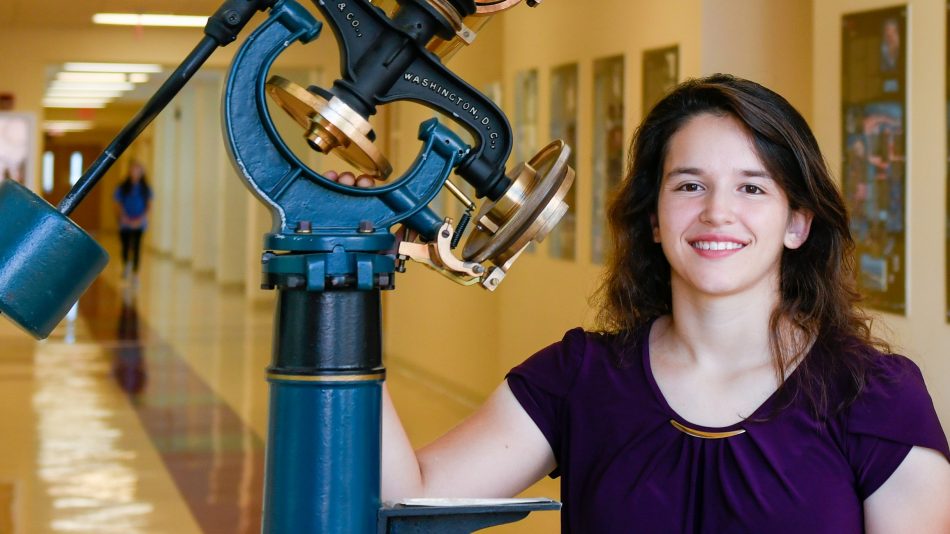Resources for Prospective Majors

Physics provides the conceptual foundation for science and engineering. A physics degree is a mark of major intellectual achievement and a gateway to a thousand careers. The physics major at NC State combines the resources of a major research university with the ambience of a small college. Our ratio of physics majors to faculty of about 3 to 1 allows us to offer small classes, personal attention, and unparalleled opportunities for involvement in research.
What can I do with a physics degree?
Most physics majors are preparing for employment in a government or industrial laboratory, or with a company that provides STEM (science, technology, engineering and math) products or services. Other physics majors are preparing for graduate studies in physics or related sciences, or enrollment in professional schools (such as medicine or law). Some physics majors are preparing for a career as a high school teacher.
The American Institute of Physics (AIP) is an excellent source of information on employment trends and opportunities for physicists. See these resources:
Course Requirements for Physics Majors
Requirements for the Physics BS degree:
- PY201, 202, 203 (University Physics I, II and III)
- PY411, 412 (Mechanics I and II)
- PY413 (Thermal Physics)
- PY414, 415 (Electromagnetism I and II)
- PY401, 402 (Quantum Physics I and II)
- PY252, 452 (Instrumental and Data Analysis and Advanced Physics Lab)
- MA141, 241, 241, 341, 401, 405 (Calculus I, II, III, Differential Equations I, II and Linear Algebra)
- PY251 (Scientific Computing)
- Courses in Computing/Numerical Methods, Chemistry, Statistics and Basic Sciences
- University “General Education Program” requirements
- Technical Electives
- Free Electives
The Physics BA degree differs from the Physics BS degree in that Mechanics II, Electromagnetism II, Quantum Physics II and Differential Equations II are not required. There are additional requirements in the Free Electives, Technical Electives, and Restricted Electives categories.
New Student Applicants
Entrance into NC State, and the physics program in particular, is controlled by the Undergraduate Admissions Office. Currently, admission into the NC State physics major is restricted to fall semesters. We welcome 40 to 50 new freshmen physics majors each year.
External Transfer Students
External transfers are students who transfer to NC State from another college or university. For external transfers, entrance into the physics program is determined by the Undergraduate Admissions Office.
- If you transfer to NC State having completed fewer than 2 semesters of calculus-based physics at your previous institution, it typically takes 3.5 academic years to complete a B.S. degree in physics.
- If you transfer to NC State having completed 2 or 3 semesters of calculus-based physics at your previous institution, it typically takes 2.5 academic years to complete a B.S. degree in physics.
Internal Transfer Students
Internal transfers are students who are already at NC State. They want to switch from another major to physics, or add physics as a second major. For internal transfers, entrance into the physics program is determined by the university’s Change of Degree Application (CODA) office.
- The Physics B.S. degree plan requires 38 credit hours of physics courses spanning 3.5 or 4 academic years. The courses are taken sequentially, and cannot be compressed into a shorter period of time. The time required to complete the B.S. degree physics courses can be shortened by one academic year if you already have credit for PY205/206 and PY208/209.
- The B.A. Physics degree plan requires 29 credit hours of physics courses spanning 3 or 3.5 academic years. The courses are taken sequentially, and cannot be compressed into a shorter period of time. The time required to complete the B.S. degree physics courses can be shortened by one academic year if you already have credit for PY205/206 and PY208/209.